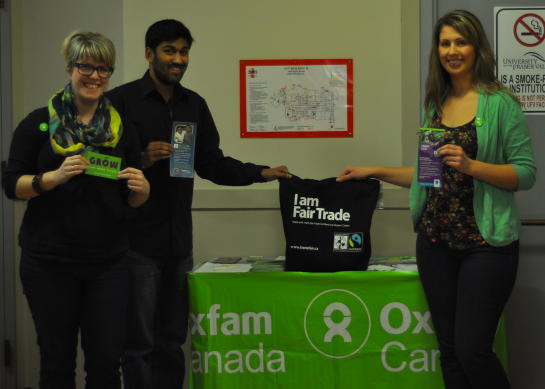By Taylor Johnson (Contributor) – Email
Print Edition: March 21, 2012
Have you ever wondered where things come from? More specifically, have you ever wondered where coffee comes from? No, not the friendly barista behind the counter at Starbucks who’s making your vanilla latte (which is much needed after staying up all night writing that paper you should have finished a week ago), but rather where that lifesaving cup of “wake me up” came from originally.
On March 14, Oxfam and Fair Trade Vancouver presented a film in order to make students more aware of the need for fair trade products. The very heart-touching film Black Gold hit the audience hard, allowing viewers to see the day-to-day struggles of a coffee grower in Ethiopia. Where on average a coffee-grower makes a meager eight pennies a day, big-name coffee industries make an average of $80 billion a day. The film followed fair trade coffee advocates from cooperative farms to the small-hut auction houses to the big name houses in New York City, where the prices of coffee are decided.
After the film, speaker Sasha Caldera presented his SFU-based fair trade movement, explaining how SFU and UFV can make campuses advocates for human rights and equality. Caldera explained step-by-step how easy it is for a small change like buying fair trade coffee to have a bigger impact globally. Every purchase of fair trade products cuts out the “middle man”—who takes a portion of profit from the farmer—and allows farming communities to build the schools and wells they need.
If the equality movement isn’t enough to sway your coffee taste buds, then perhaps the price will. Caldera explained that the price of fair trade products is on average the same, or a few pennies more, then the products we already buy. Making UFV a fair trade campus might not save the world right away—even though we wish it was that easy—but it will definitely demonstrate our compassion for equality everywhere.
So the next time you decide to buy a cup of coffee, take the time to ask “where did this come from?” It might just convince you to swap out one of your daily coffees for a fair trade brand. For more information, visit http://fairtrade.ca/en/get-involved/fair-trade-campus.



